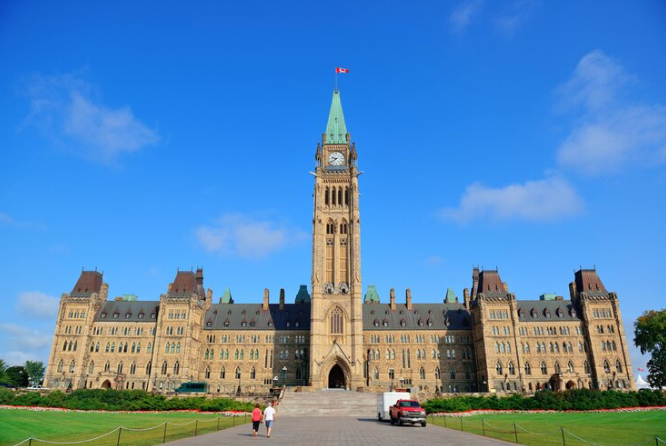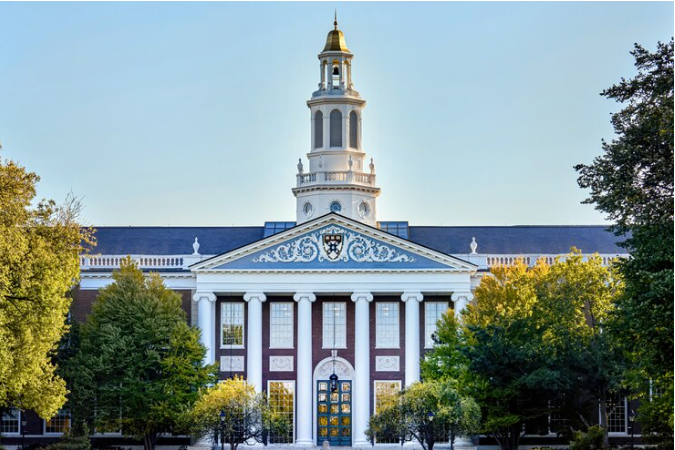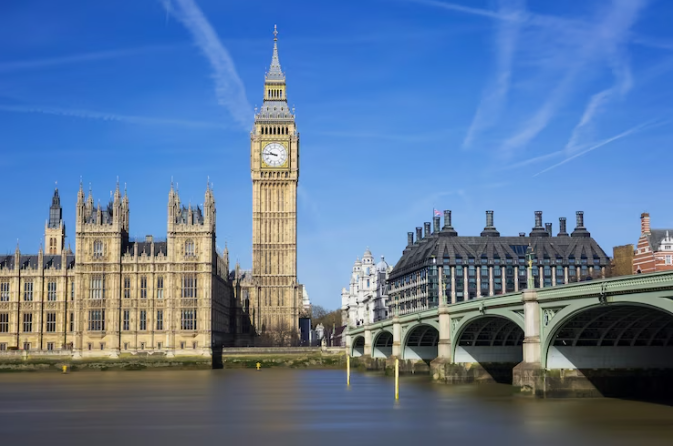A Comprehensive Guide for Abroad Study
Globally acclaimed institutions are famous schools and colleges known for being really good. People from all over the world know and respect them. These places have excellent teachers, modern facilities, and lots of different students. They’re famous because they always have high standards for learning and doing new and important research. People who go to these institutions usually get a top-notch education and become successful in their careers. If someone wants a great education, they might try to get into one of these globally acclaimed institutions.
What is a Student Visa?
A student visa is an official authorization issued by a country that allows individuals from other nations to enter for educational purposes. It permits international students to enroll in educational institutions and outlines the terms of their stay, such as duration, specific institution, and any conditions. Obtaining a student visa is a necessary step for studying abroad, with application processes differing between countries.
Student Visa Intakes: Understanding the Enrollment Periods
Intakes for a student visa in universities are like different seasons when you can start your studies. It’s often called a semester. Each semester is a specific time when universities welcome new students. However, the timing can be different in various countries.
Let us look at the intakes of a few major countries:
- August to December (Fall term)
- January to April (Spring term)
- May to August (Summer term)
- September (Fall intake)
- January (Winter intake)
- May (Spring intake)
- Semester 1: Late February/early March to late May/early June
- Semester 2: Late July/early August to November
Country | Intakes | |
France | January | September |
Germany | April | September/October |
Netherlands | February | September |
UK | January/February | September/October |
Italy | February | September |
Finland | January | September |
Spain | October | February |
Ireland | February | September |
Top Universities for International Students
- Harvard University
- Stanford University
- Princeton University
- The University of Chicago
- Massachusetts Institute of Technology
- California Institute of Technology
- Yale University
- The University of California – Berkeley Campus
- University of Toronto
- McGill University
- University of Sherbrooke
- The University of British Columbia
- McMaster University
- University of Alberta
- The University of Melbourne
- The University of Queensland
- The University of Sydney
- The University of Western Australia
- Australian National University
- Monash University
- University of New South Wales
- University of Cambridge, UK
- University College London, UK
- King’s College London
- Ludwig Maximilians University Munich, Germany
- Ecole Polytechnique, France
- Eindhoven University of Technology, Holland
- University of Oxford, UK
- The University of Edinburgh
- Heidelberg University, Germany
- Technical University of Munich, Germany
- Sorbonne University, France
- University of Amsterdam, Holland
Top 10 universities by QS World University Rankings 2024
1) Massachusetts Institute of Technology (MIT)
2) University of Cambridge
3) University of Oxford
4) Harvard University
5) Stanford University
6) Imperial College London
7) ETH Zurich – Swiss Federal Institute of Technology
8) National University of Singapore (NUS)
9) University College London (UCL)
10) University of California, Berkeley (UCB)
Related FAQs
Here’s a list of the top Master’s programs in different countries for international students:
United States:
- Masters in Business Administration (MBA)
- Engineering (Civil and Structural, Chemical, Electronics, Computer Science)
United Kingdom:
- Masters in Business Administration (MBA)
- Natural Sciences
Canada:
- Engineering (Electrical, Mechanical, Aerospace)
- Masters in Business Administration (MBA)
- Dentistry
Australia:
- Masters in Business Administration (MBA)
- Engineering (Electrical, Civil)
Germany:
- Masters in Business Administration (MBA)
- Engineering (Electrical, Mechanical, Automotive)
Here’s a summary of the study visa requirements for different countries:
United States (USA):
- Valid passport
- Passport validity exceeding six months beyond the stay period
- Recent passport-size photograph
- DS-160 Confirmation page
- Form I-20
- Payment of SEVIS fee
- Non-immigrant visa application
Canada:
- Enrollment in a designated university
- Proof of funds for tuition, living expenses, and return travel
- Police certificate and no criminal record
- Good health, may require a medical examination
- Assurance of leaving Canada after study permit expiration
Australia:
- Enrollment in a full-time course at an Australian university
- Proof of Genuine Temporary Entrance
- Certificate of good health
- Proof of good character
- Passport and supporting documents
Germany:
- Passport and other visa application documents
- Proof of financial stability
- Admission confirmation from a German university
- Evidence of previous education
- Public health insurance
- Entrance qualification exam (HZB)
- English or German language proficiency certificate.
The cheapest places to study in the Schengen area:
Hungary:
- High education standard with low tuition fees
- Average tuition fees around $1000
- Scholarships available for international students
- Top universities: University of Szeged, Eötvös Loránd University, and University of Debrecen
Finland:
- One of the cheapest countries in Europe for international students
- Affordable tuition fees
- Top institutes: University of Helsinki and Aalto University
Sweden:
- Superior living standards
- No tuition fees required
- Access to partial scholarships for international students
- Top universities: Lund University and Karolinska Institute
Poland:
- Low tuition fees
- Affordable cost of living
- Top universities: University of Warsaw and Jagiellonian University
What Documents are Required for a Student Visa?
Here’s a list of documents required for a student visa:
Valid Passport:
- Ensure that your passport is valid for the duration of your intended stay and beyond.
Proof of Being a Bonafide Student:
- Admission letter or confirmation of enrollment from the educational institution.
Payment Receipts for Universities:
- Receipts confirming payment of fees to the university.
Educational Documents:
- Academic transcripts, certificates, and diplomas from previous educational institutions.
Proof of Funds:
- Evidence showing that you have sufficient funds to cover tuition and living expenses.
Bank Statements:
- Official bank statements demonstrating financial capability.
Loan Approval Letter:
- If applicable, provide a letter confirming approval for an educational loan.
Scholarship Letters:
- If you have been awarded a scholarship, provide the official scholarship letters.
Affidavit of Support:
- A legal document affirming financial support, often from a sponsor.
Language Proficiency Result:
- Results of language proficiency tests (e.g., IELTS, TOEFL) as required by the country.
GPF/EPF Statement:
- Government or Employee Provident Fund statements, if applicable.
Property Evaluation Report:
- Report evaluating the value of any owned property, if declared as a financial asset.
CA Certificate:
- Certificate from a Chartered Accountant confirming financial status.
Loan Capability Certificate:
- A certificate verifying the capability to repay an educational loan.
Bank Letters:
- Supporting letters from banks regarding financial status and capability.
Ensure all documents are accurate, up-to-date, and meet the specific requirements of the country you are applying to.
Related FAQs
- Scanned Copies: Provide scanned copies of your original bank statements.
- Bank’s Verification: Ensure the statements are signed and stamped by the bank for authentication.
- Letterhead Requirement: The statements must be on the official letterhead of the bank.
- Tenure Specification: Clearly state the duration or tenure covered by the bank statement.
These requirements help verify the authenticity and reliability of your financial documentation.
The Affidavit of Support is one of the financial documents for studying abroad.
- Notarized Document: The Affidavit of Support is a paper officially confirmed by a notary.
- Sponsorship Acknowledgment: It clearly states that someone else will cover your living costs and tuition.
- Family Member or Spouse: This document must be from a close relative or your spouse.
This paper ensures there’s clear confirmation and commitment from someone trustworthy to support your financial needs during your studies abroad.
How to Apply for a Student Visa?
To apply for a student visa, you need to follow the rules set by different countries.
- Online Form: Fill out the visa application form on the internet.
- Confirmation Printout: Print the confirmation page after completing the form.
- Photo Upload: Follow the rules to upload a photo.
- Interview Booking: Schedule an interview at the nearest US embassy or consulate.
- Fee Payment: Pay the visa application fee.
- Document Collection: Gather all necessary documents.
- Interview Attendance: Show up for the visa interview.
- Wait for Visa: After processing, get your visa.
- Acceptance Letter: Get accepted by a Canadian university.
- Check Study Permit: Use the permit tool to confirm if a student visa is needed.
- Online Application: Apply on the CIC website.
- Document Submission: Submit required documents online or offline.
- Application Letter: Provide a letter explaining your application.
- Financial Proof: Show you have enough funds for study and living.
- Criminal Record Check: Confirm a clean criminal record.
- Health Documents: Submit health records and insurance proof.
- Document Preparation: Get all necessary documents ready.
- Language Proficiency: Prove proficiency in English.
- Biometrics: Provide biometrics at a visa centre.
- Fee Payment: Pay the application fee at the centre.
- Visa Interview: Attend the visa interview.
- Wait for Processing: Wait for visa processing to be completed.
- Course Selection: Choose an approved course and institution.
- Check Eligibility: Ensure you meet visa eligibility criteria.
- Offer Letter: Obtain an offer letter from the chosen institution.
- Health Insurance: Get Overseas Student Health Cover (OSHC).
- ImmiAccount: Create an account on the immigration website.
- Online Application: Fill out the student visa application online.
- Document Upload: Upload the necessary documents and pay the fee.
- Biometrics and Health Check: Attend appointments if required.
- Wait for a Decision: Wait for the visa decision.
- Visa Grant: Upon approval, receive the visa and plan your travel.
- Find Embassy: Locate the nearest German embassy or consulate.
- Check Requirements: Review all student visa requirements carefully.
- Appointment Setup: Schedule a visa appointment.
- Document Preparation: Gather all necessary documents for your application.
- Pay Fee: Complete the visa application fee payment.
- Interview Preparation: Get ready for the visa interview.
- Wait for Processing: Allow time for visa processing.
Choose Course and Institution:
- Select a suitable academic program and university in the UK.
Receive CAS (Confirmation of Acceptance for Studies):
- Obtain CAS from the chosen institution after securing admission.
Prepare Documents:
- Gather necessary documents, including CAS, passport, academic transcripts, financial evidence, and proof of English proficiency.
Book Appointment:
- Schedule an appointment with the nearest UK visa application center.
Complete Online Application:
- Fill out the online visa application form.
Attend Biometrics Appointment:
- Provide biometric information at the visa application center.
Submit Documents:
- Submit required documents during the appointment.
Pay IHS (Immigration Health Surcharge):
- Pay the IHS fee online to cover healthcare costs.
Attend Visa Interview (if required):
- Attend a visa interview if deemed necessary.
Wait for Visa Decision:
- Await a decision on the visa application.
Collect Passport:
- Retrieve the passport with the visa stamped upon approval.
How Much Does it Cost to Get a Student Visa?
- Service fee of $350
- Application fee of $160
- The service fee for an exchange visitor is around $220
- Applying for a study permit in Canada costs $CAN 150
- The student visa application for Australia is AU$620
- The visa fee for a German student visa is 75 Euro
- General Student Visa: Fee: £348 (Pound Sterling)
- Short-Term Student Visa: 6-month visa fee: £97 (Pound Sterling)
- 11-month visa fee: £186 (Pound Sterling)
How Long Does it Take to Get a Student Visa?
- Scheduling a UK student visa embassy visit takes about 3 days, and the processing time is 3 days to a few weeks.
- Delays may occur. Check the official website for updates.
- The processing time is around 20-90 days.
- Processing time is usually around 4 weeks.
- Might take longer because of the high volume.
- The standard processing time is 25 days.
- In some cases, it might take 6-12 weeks or even 3 months.
- Processing time is usually around 3 weeks
Why Choose Schooling Visa
SchoolingVisa Overseas Careers stands out as our consultant, and our track record speaks for itself. We’ve successfully served our customers.
Explore the World with schoolingvisa:
- Visit Visa: Whether for leisure or business, embark on global travel with schoolingvisa.
- Study Visa: Unlock opportunities to study in globally recognized universities.
- Work Visa: Settle in the world’s best cities and pursue your career ambitions.
- Immigration: Your comprehensive solution for all visa and immigration requirements.
- Permanent Residence: Attain the status of Permanent Resident and enjoy exclusive benefits.
Tailored Services for Your Success:
- Profile Evaluation: We analyze your unique profile history, aligning it with visa eligibility criteria, and provide guidance on the appropriate visas to pursue.
- Resume Writing: Craft a standout resume tailored to meet the expectations of immigration authorities.
- Document Procurement: Assist in gathering essential documents required for visa applications.
- Professional Guidance: From interview training to language courses and crafting impactful resumes and cover letters, we offer comprehensive support.
- Dedicated Case Officer: Enjoy personalized assistance and a singular point of contact throughout the entire process.
- Post-Landing Services: Our support extends beyond visa approval, helping you settle comfortably in your new country with customized post-landing services.
Experience a seamless journey for all your visa needs with Schoolingvisa – from profile evaluation and document preparation to post-visa settlement services. If you have questions about filing the AIPP application, reach out to us immediately. We are here to assist you in every possible way.
Take the first step – start your visa application today!







